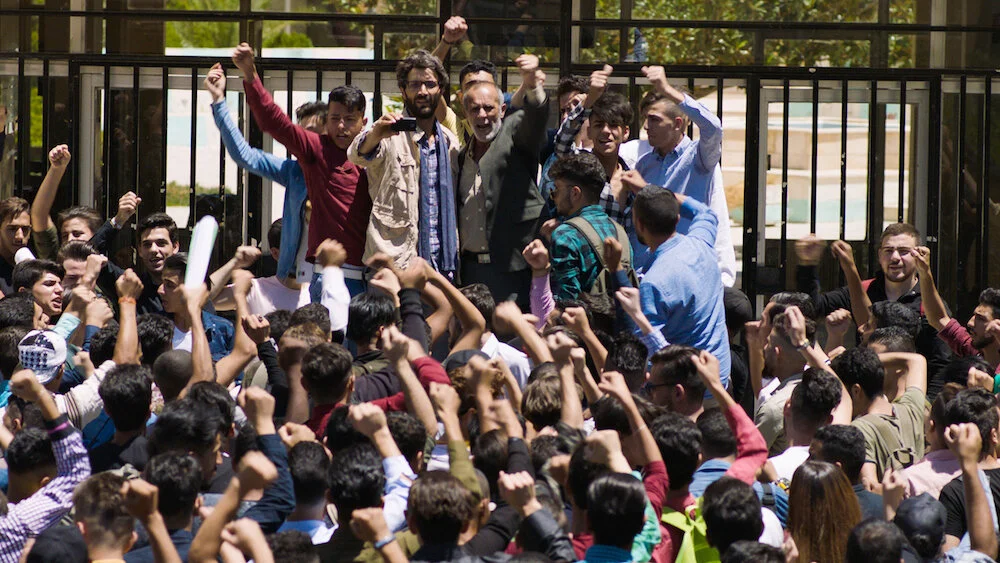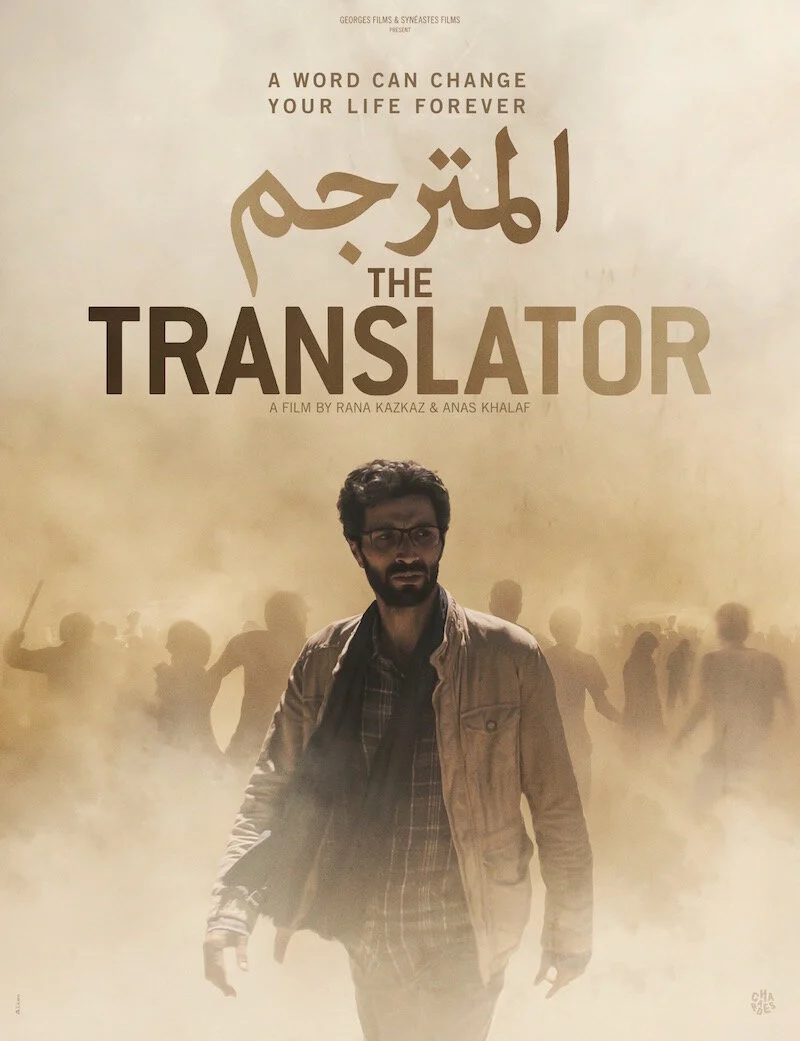The relationship with our own home countries is often problematic. Take the American pride at the time of the Trump presidency, or the usual British worldliness at the crossroads of Brexit.
But when the homeland happens to be Syria, the stakes multiply and that citizen/country relationship becomes a dance — of death, of survival, of love and hate. Sometimes all at once.
While there have been loads of documentaries about Syria and its place in the Arab Spring revolutions of 2011, no narrative film has even come close to the way ‘The Translator’ tells the story. A complete story that goes as far back as the first Syrian revolts in 1980 under Bashar al-Assad’s father, Hafez which resulted in the Hama massacre in 1982. The filmmakers behind this spellbinding film are husband and wife team Anas Khalaf and Rana Kazkaz, both possessing multi-hyphenated nationalities but at the center of it all, Syrian. Because let’s face it, there are currently many more Syrians living spread out around the world than in Syria itself.
The story of ‘The Translator’ begins in modern-day Australia with one such Syrian emigrant, Sami, played by the haunting Ziad Bakri. Those who know and love the Bakri dynasty of actors, will also find a cameo by older brother Saleh as a treat. But this comes later… We learn that Sami is the son of an iconic freedom fighter (played by maverick film producer Ossama Bawardi in another of many lovely cameo roles) who was arrested and disappeared during the 1980 revolts. We also slowly find out, through little bits of information here and there that Sami misspoke during one of his translating trips, at the Sydney Olympics in 2000, thus having to resettle in Australia.
When Sami gets word in the spring of 2011 that his brother Zaid (Saleh Bakri — told you!) has also disappeared, in much the same manner as his father, he leaves his future wife, attorney Julie (played by one of my favorite Australian actresses ever, Miranda Tapsell) and travels with his friend Chase (David Field) to Damascus. Needless to say, neither the trip nor the arrival go well and Sami is thrust into a battle for survival, but also a clash of conscience with himself and those who stayed behind.
At the center of ‘The Translator’ is a touching, really poignant examination of the theme of belonging, and non-belonging. What happens to someone when they leave their homeland? Does that place also cease to feel like home, and where is home anyway? For many, millions of us who have trekked to another world in our lifetimes, it’s an endless question we ask ourselves but also grapple with around our indigenous friends. Although meeting those who belong to the same country from birth has become increasingly a rarity. In ‘The Translator’ the most interesting clashes are between Sami and tried and true Syrian Karma, exactly for this reason.
The film was born out of the idea of belonging to and supporting a motherland, as the filmmakers disclosed in their press kit interview. “We did not participate in the peaceful demonstrations that took place at the beginning of the Syrian revolution. Although we supported the demonstrators, we did not lend our voice. We were afraid to. Afraid to be arrested, tortured or killed. Although we are Syrian and were living in Damascus at the time, we grew up in France and the US. We had passports that afforded us the privilege of leaving the country whenever we wished. The realization of this for us is ugly. It's real, but humiliating. And although we fully recognize that making a film about the revolution pales in comparison to those who risked their lives to participate, this film nonetheless represents the need to testify. Our main character, Sami, is not unlike ourselves.”
The greatness of ‘The Translator’ lies in its honesty. We truly care about Sami, and what happens to him could turn out to be a revolutionary’s son’s worst nightmare. But we cannot forget that these are Syrian filmmakers and thus, courage will be part of their ending. I’m not giving anything away by simply pointing that out.
Its shortcoming is what afflicts every Syrian film after 2012 — the lack of Syria in its landscapes. While I couldn’t find out for sure where the production was filmed (well, not the Australian scenes which clearly showed Sydney landscapes) it felt like Amman or somewhere in Jordan or even Lebanon stood in for Damascus and Syria. But DoP Éric Devin and production designer Catherine Cosme definitely did a beautiful job to make us believe this was exactly where we were supposed to be.
Considering ‘The Translator’ is the feature debut for both Khalaf and Kazkaz, this is one impressive feat. Even callous film critics have pointed to the mastery of their story construction, which is the result of the couple’s collaboration with French writer and director Magali Negroni.
The greatest feeling a film can inspire is curiosity and ‘The Translator’ made me research dates, find out about the regimes I thought I already knew so much about and all around, made me inquisitive about the events described. The string of wonderful actors, both cameos such as Palestinian filmmaker Annemarie Jacir and by professional powerhouses like the instantly recognizable Ramzi Maqdisi as Moneeb — the boxer whose words Sami mis-translated during the Olympics — are a treat for world cinema lovers. But also seeing actor and filmmaker Carlos Chahine once again on the screen, whose hypnotic portrayal of a character simply called “the General” makes the ending of ‘The Translator’ one I shall not soon forget.
If you wish to get acquainted with the filmmakers’ previous and wonderful short film ‘Mare Nostrum’, check it out on Vimeo Premium.
‘The Translator’ premiered at this year’s Toronto International Film Festival and played in the 2020 Tallinn Black Nights Film Festival which ran from the 13th to the 29th of November.

